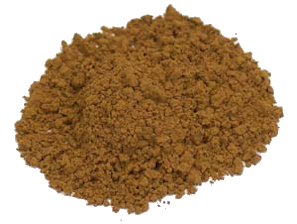 Schisandra powder.
Schisandra powder.
Schisandra is a plant native to China and eastern parts of Russia. In China, Schisandra is also known as Wu Wei Zi which means a "5-flavour berry" - salty, sweet, sour, spicy and bitter - all in one food.
Chinese people, in particular, had used it for thousands of years - they believe this food offers a whole number of wide-ranging health benefits.
We think Schisandra is a very valuable food for those who are trying to relieve tiredness and fatigue in a natural way, without having to use harsh and often harmful synthetic medications. (Ref. 1)
Schisandra is a known adaptogen - it can bring the body back into balance and protect it against environmental stressors. (Ref. 1)
From the perspective of energising the body *and* mind, Schisandra is believed to stimulate the brain and the central nervous system without causing any physical instability that is often associated with caffeine consumption. (Ref. 2)
Schisandra may have adaptogenic effects similar to those of: (Ref. 3)
- Ginseng,
- Rhodiola rosea,
- Maca root,
- Reishi mushroom,
- Shiitake mushroom,
- Maitake mushroom,
- Ginkgo biloba,
- Ashwagandha.
All these foods may improve stamina and increase endurance rates for athletes as well - they can, no doubt, be a valuable natural source of athletes' nutrition.
You may also want to alternate Schisandra with another exceptional, marine-based food - seaweeds. Learn more about the health benefits of seaweeds here.
Written by: Irina Bright
Original publication date: 2013
Updates: 2020
Republication date: 2020
References.
1. Alexander Panossian, Georg Wikman, Punit Kaur, and Alexzander Asea (2012). Adaptogens Stimulate Neuropeptide Y and Hsp72 Expression and Release in Neuroglia Cells. Published in Frontiers in Neuroscience. Retrieved June 6, 2013 from: https://www.ncbi.nlm.nih.gov/pmc/articles/PMC3269752/
2. Philip Y. Lam and Kam Ming Ko (2012). Schisandrin B as a Hormetic Agent for Preventing Age-Related Neurodegenerative Diseases. Published in Oxidative Medicine and Cellular Longevity. Retrieved June 6, 2013 from: https://www.ncbi.nlm.nih.gov/pmc/articles/PMC3359732/
3. Sergiy Oliynyk and Seikwan Oh (2013). Actoprotective effect of ginseng: improving mental and physical performance. Published in Journal of Ginseng Research. Retrieved June 6, 2013 from: https://www.ncbi.nlm.nih.gov/pmc/articles/PMC3659633/